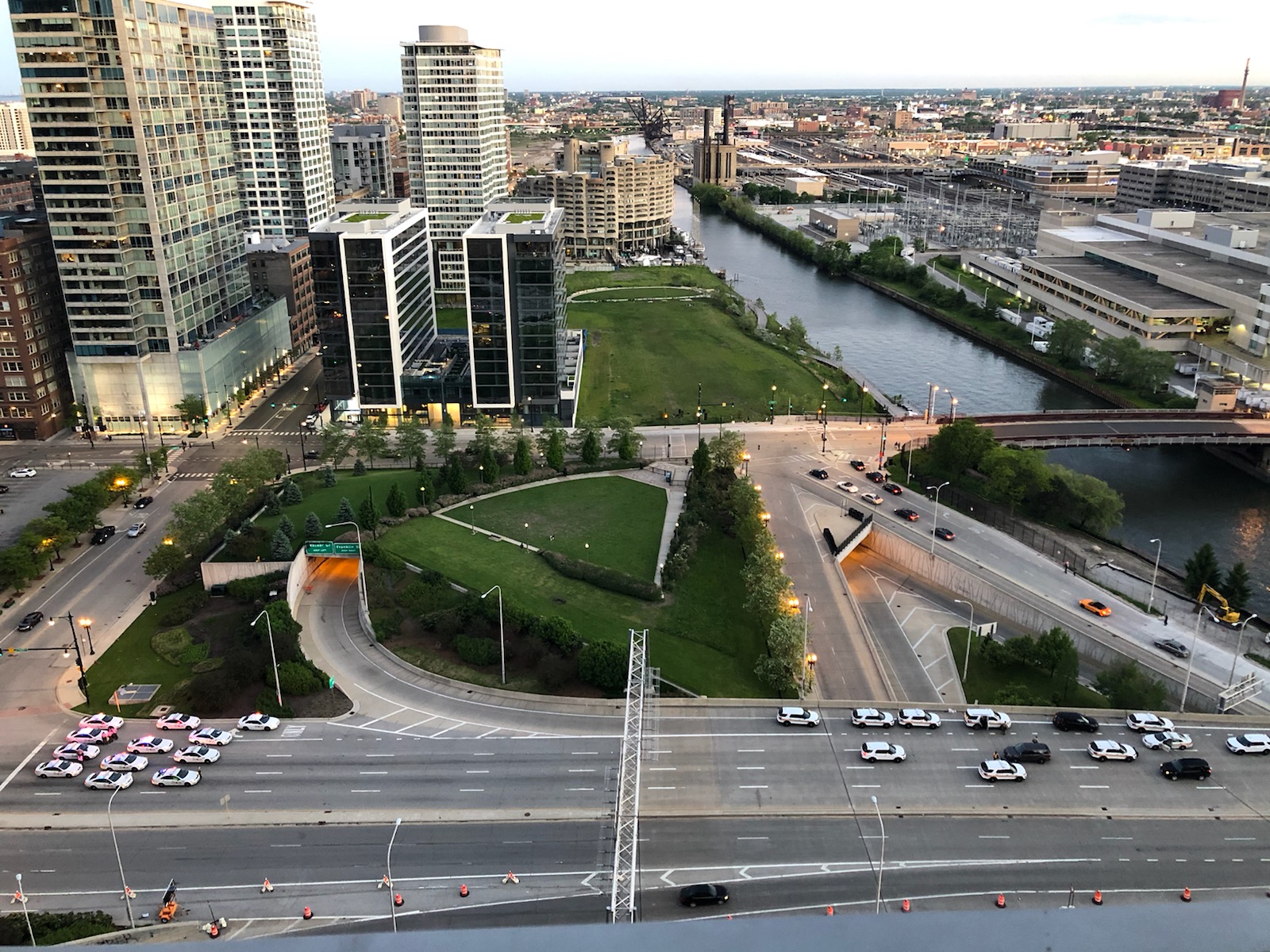A peaceful protest in downtown Chicago that began at 2pm yesterday devolved into violence by 8pm, leading to Mayor Lori Lightfoot imposing a 9pm to 6am curfew city-wide:
“I want to express my disappointment and, really, my total disgust at the number of others who came to today’s protests armed for all-out battle.”
Lightfoot singled out “the people who came armed with weapons,’’ calling them “criminals.“
“We can have zero tolerance for people who came prepared for a fight and tried to initiate and provoke our police department.’’
She ruled out calling in the National Guard.
The city lifted bridges and blocked access to downtown, shutting Metra and downtown CTA stations around 8:30. I live about 10 km away from the protests, but I have friends and family in the Loop and South Loop. One sent this photo of police blocking the Congress Parkway:

(Movie fans may recognize the section of grass along the river, top-center in the photo, as the location of the Abegnation housing complex in the movie Divergent.)
Looters smashed windows at Macy's on State Street and Nieman-Marcus on Michigan Avenue. In the South Loop, a friend reported on Facebook:
Will have to see in the daylight but I'm hearing the entire South loop is destroyed. Every business windows smashed and looted broken glass everywhere. From Ida B Wells down to Cermak from Michigan down to Canal. Can verify all the stores on my block are destroyed.
The local CBS affiliate had this:
So, it's scary—but in many ways, it looks a lot better than it would have looked in the 1960s or 1920s. This isn't societal collapse. The Chicago Police remained professional and disciplined throughout. (Other police departments in the US, maybe not so much.) They know what's at stake, and they also know that the "protesters" instigating the violence and attacking them are trying to provoke a disproportionate response.
One of my friends summed up the complexity:
It is entirely possible to support the protesters and stand with them and to be angry and devastated by the murder of George Floyd and by every other similar murder as well as the systemic racism that allows it, and also to be angry and sad about the destruction and looting. Vandalism and looting may be what Dr. King called derivative crimes. Uncontested and deplorable derivative crimes. The people doing these things are criminals.
Yet it is also possible to have anger at the people destroying and looting and also have empathy and compassion for the people doing the destroying and looting and understanding the underlying root causes of their actions.
George Takei Tweeted:
He also pointed out that the Hong Kong protests worked in part because peaceful protesters called out and filmed the agitators infiltrating their events. We should do the same.
Then there's The Onion from 2017. I'll just leave it there.